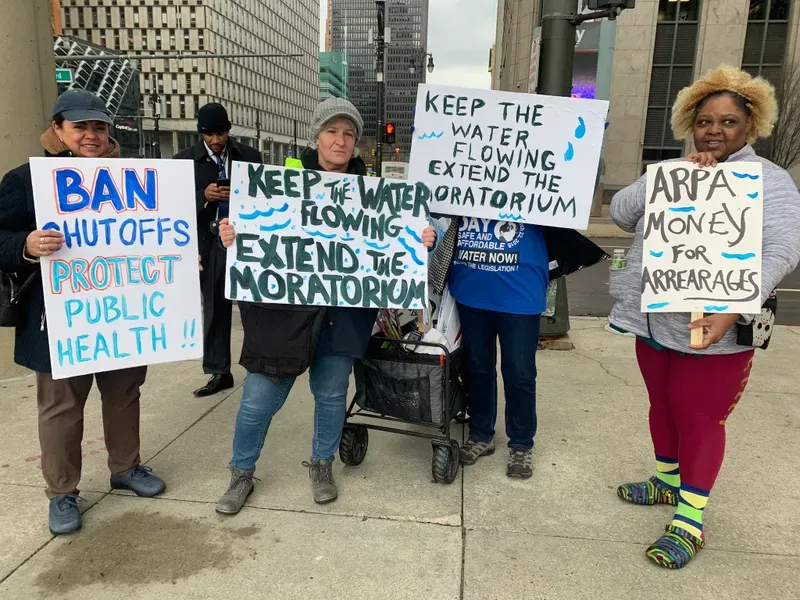
DETROIT (WWJ) -- Detroit's program to improve water service affordability for low-income residents has been impacted by federal funding cuts.
Officials in the city say this has led to thousands of families being dropped from the income-based Lifeline Plan. The plan allows them to pay for their water at a fixed rate of $18 per month and erases their water debts.
But, Bryan Peckinpaugh of the Detroit Water and Sewerage Department says he does not think this will necessary lead to more water shutoffs for impacted residents.
"We have taken the compassionate measure to move those who are no longer on the lifeline plan into our Easy Pay plan, which is a payment arrangement plan, and it's very easy for people to get enrolled," Peckinpaugh said. "In fact, we even waived a $10 deposit for our Easy Pay plan to automatically enroll these Lifeline households into Easy Pay."
Peckinpaugh said families that sign up for the Easy Pay plan will be protected from water shutoffs if they keep up with their monthly bills.
The plan allows them to pay their past due amount across 36 months. To sign up, or for more information, Detroiters can go to the city's website at this link.
Things came to a head with water shutoffs in Detroit more than a decade ago. In the summer of 2014, more than a thousand people took to the streets downtown, calling for an immediate moratorium on service shutoffs by the water department.
Among them was "Avengers" actor Mark Ruffalo, who appeared unexpectedly — calling on others to join the demonstration, saying what was happening in Detroit was inhumane.
There was a moratorium on shutoffs in Detroit for a time, while the city leaders worked on programs, including as Lifeline, to help struggling residents.
The most recent moratorium, in connection with the COVID-19 pandemic — expired on Jan. 1, 2023.
